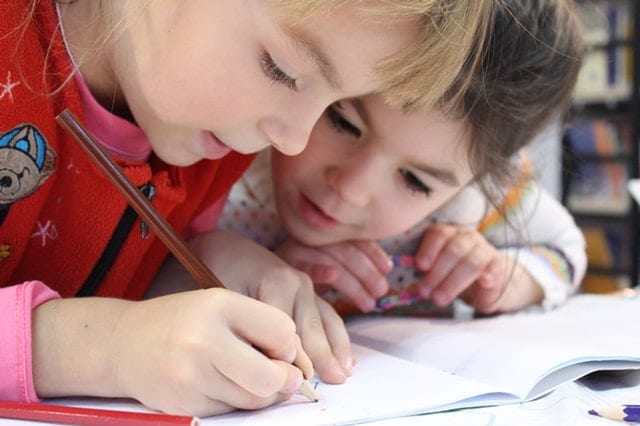We previously posted an article about hearing loss in children.
Reports estimate that approximately two to three out of every 100 children are affected by a hearing loss. There are several potential causes for hearing loss in children, ranging from genetics and environmental factors to complications during birth and so on. When a child is diagnosed with hearing loss, it can be an overwhelming experience for the parents. However, early intervention is the best way to ensure your child receives adequate treatment. By understanding pediatric hearing loss, you can be better equipped to identify signs of a hearing impairment.
Types of Pediatric Hearing Loss
There are two types of hearing loss in children. Congenital hearing loss is present at the time of birth. There are many causes of congenital hearing loss, such as genetic factors, premature delivery or a nervous disorder, but they be difficult to identify. The second type of pediatric hearing loss is acquired hearing loss. This type of loss is acquired after birth and may be caused by injury, infection, noise exposure or other environmental influences.
Signs of Hearing Loss

It can be challenging to identify a hearing loss in children, particularly if they are not yet speaking or the hearing loss is mild to moderate. Some signs you may look for are:
- Does your child react to loud sounds? (0-4 months)
- Are they calmed by a familiar voice? (0-4 months)
- Do they smile or react when you speak? (4-9 months)
- Are they babbling? (9-15 months)
- Are they repeating sounds that you make? (15-24 months)
These may not necessarily indicate the presence of a hearing loss, but if your child is not exhibiting these behaviors in the expected timeframe, we recommend communications testing. This will help in the diagnosis of any hearing or speech disorders.
Seeking Treatment
If your child is diagnosed with a hearing or speech impairment, there are many treatments and therapies available. Your child may work with an audiology professional or speech pathologist to improve their communication abilities.
Treatment options will be based on the type, severity and frequency of your child’s hearing loss. A Louisville pediatric hearing aid doctor will offer treatment guidelines after learning about your child’s medical history and doing a complete hearing assessment.
There are several styles of hearing aids for adults, but children are typically fitted with Behind-The-Ear (BTE) hearing aids. BTE hearing aids have a casing that sits behind the ear and houses all the electronics. It attaches over the top of the ear by wire to a speaker, which sits in the ear canal. These hearing aids are the most powerful and effective for relaying consistent, understandable sound. Due to their reliability and power, they are considered the best option for children whose language skill development is a higher priority than cosmetic concerns.
In some cases, especially in older children whose language is mostly developed, a pediatric audiologist may suggest other models of hearing aids for your child. While these hearing aids may not be as effective, they are appealing due to their cosmetics and comfort. Smaller, sleeker styles including In-The-Ear (ITE), In-The-Canal (ITC), Completely-In-the-Canal (CIC) and Receiver-In-the-Canal (RIC) hearing aids.
Along with your child’s hearing aids, there are a number of important accessories that can improve language and learning. Children and adults alike commonly use classroom-specific hearing aid accessories, as classes and lecture halls prove to be some of the hardest places to focus for those with hearing loss.
For older children who understand their hearing loss, wireless remote control accessories and apps allow for precise hearing aid adjustments without having to touch the tiny and delicate controls on the hearing devices themselves. Other similar accessories can allow your child to wirelessly connect directly to important equipment like televisions, cell phones, computers and MP3 plays, which will help them relate more easily to their peers and family members.
If your child is experiencing a communication delay, Heuser Hearing Institute can help. We seek to educate, coach and empower students and their parents through our home-based services. We also offer preschool and kindergarten programs to Louisville residents. To learn more about pediatric hearing loss, contact our office at (502) 584-3573.